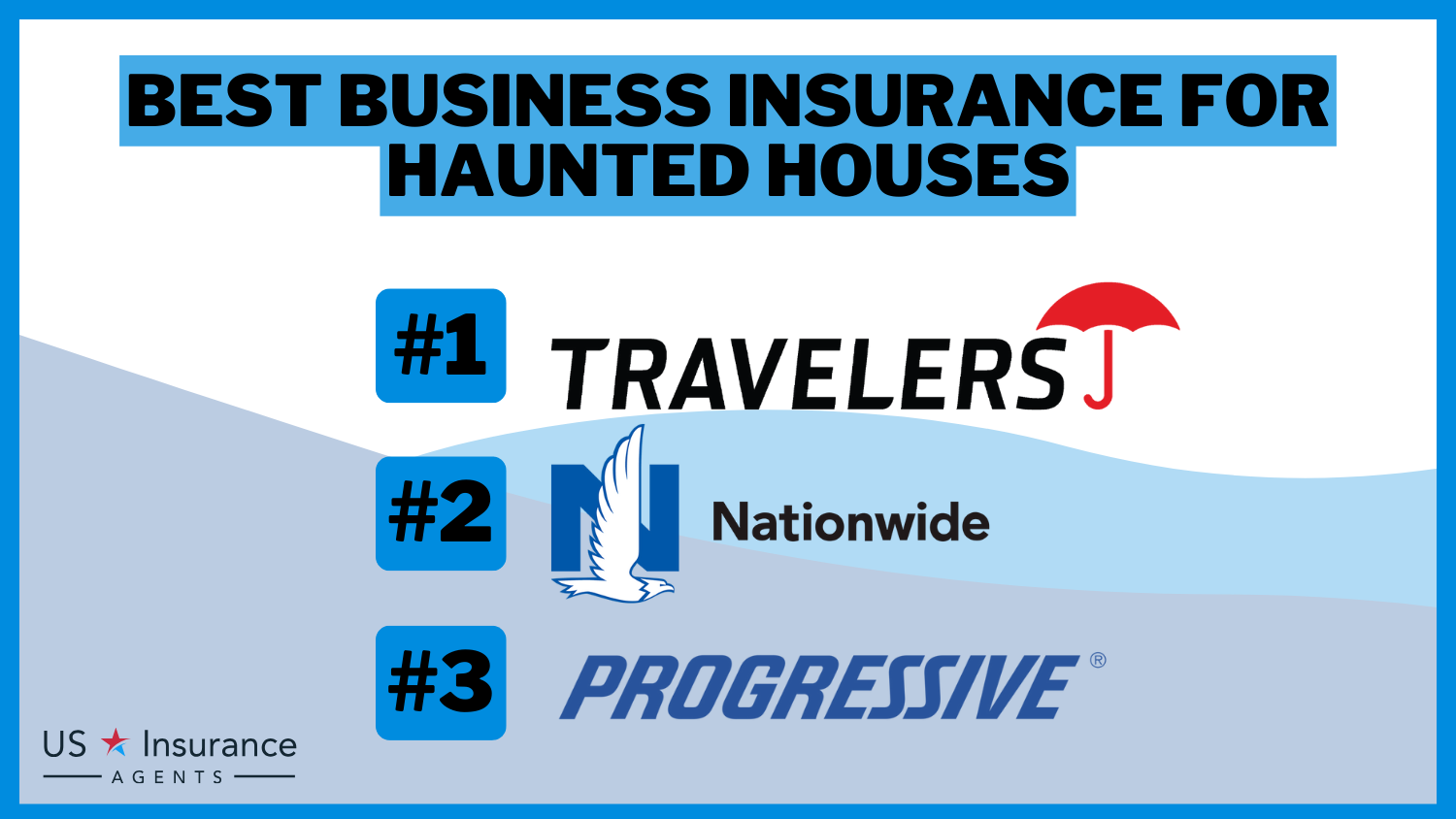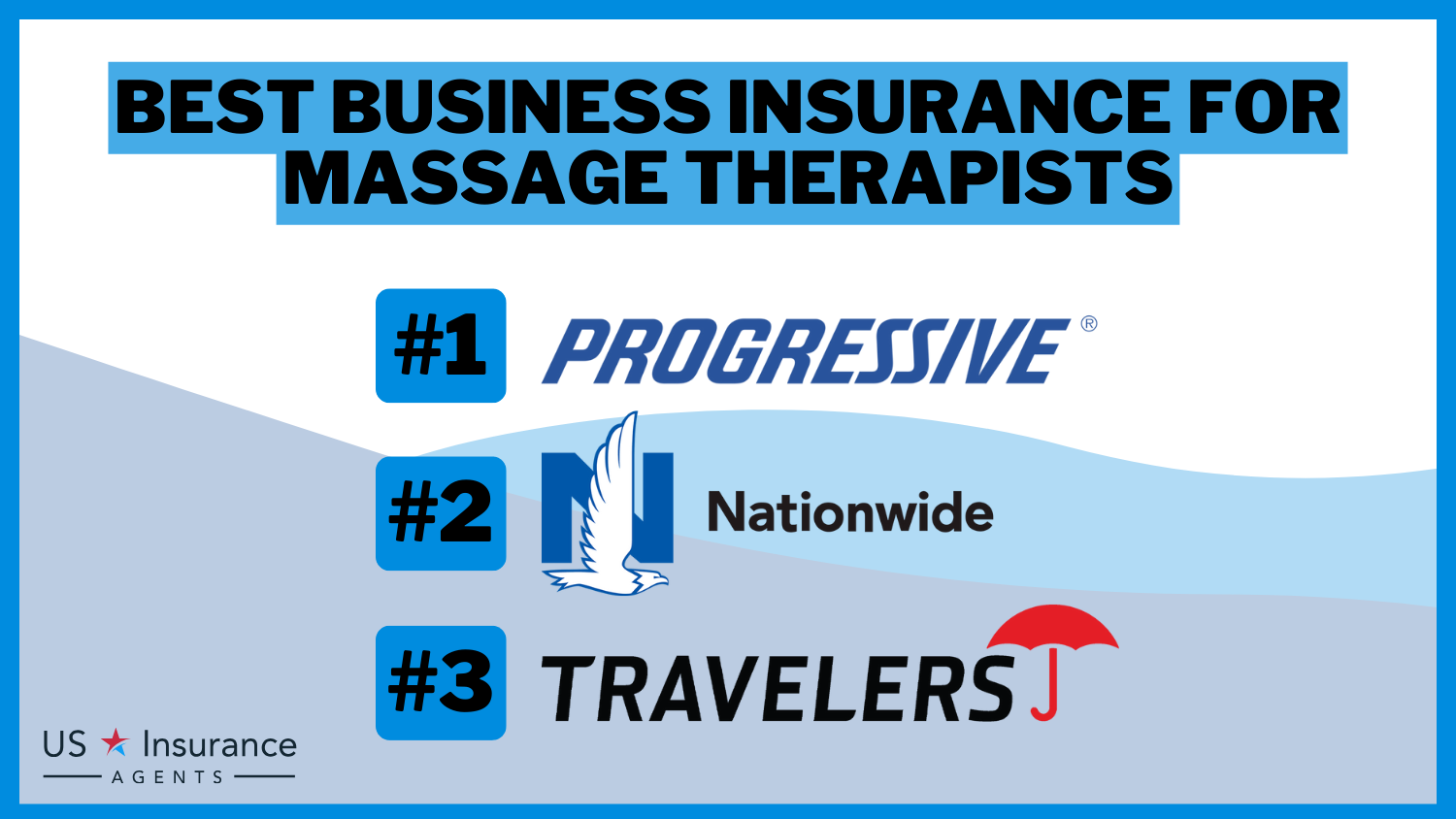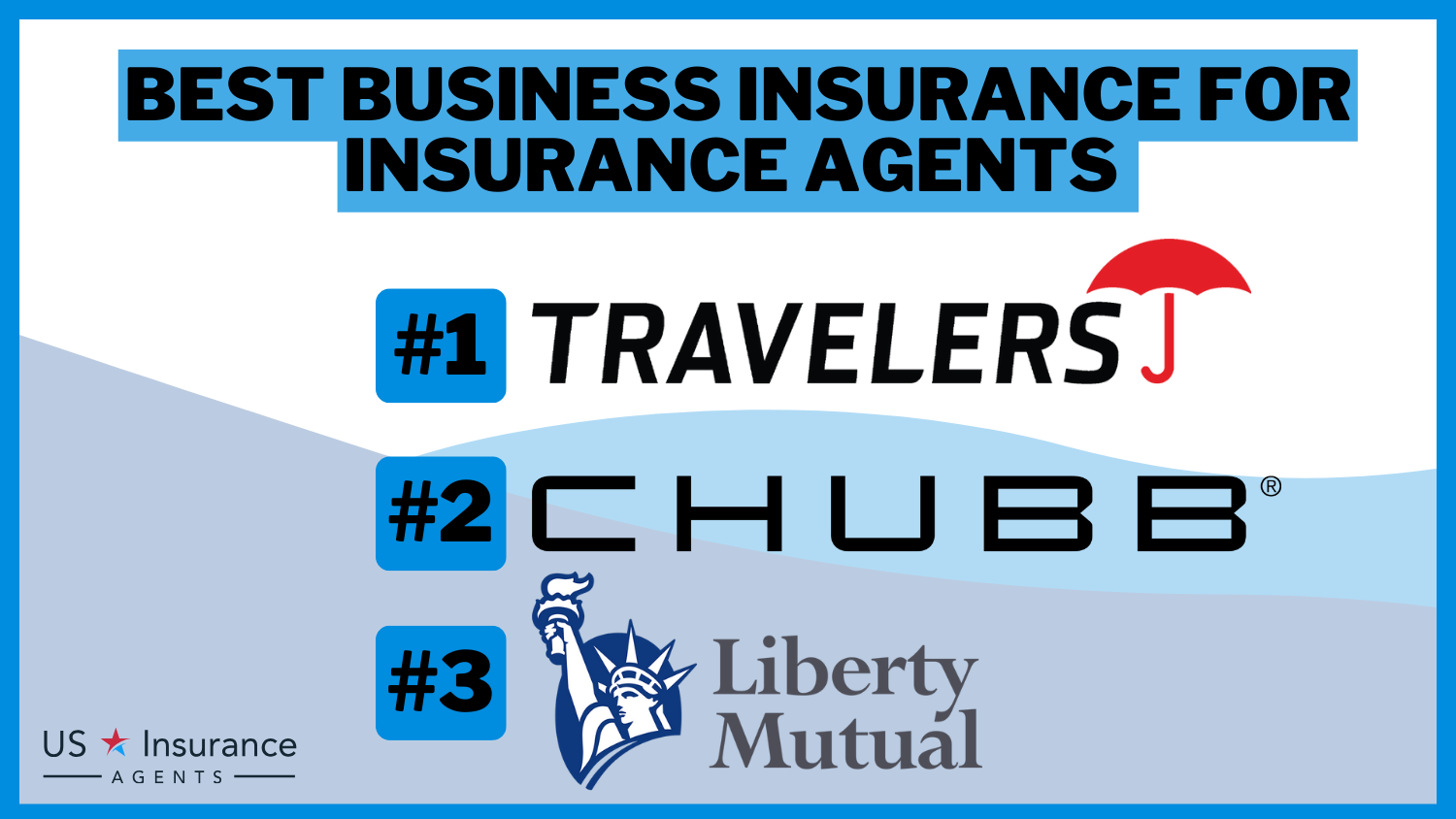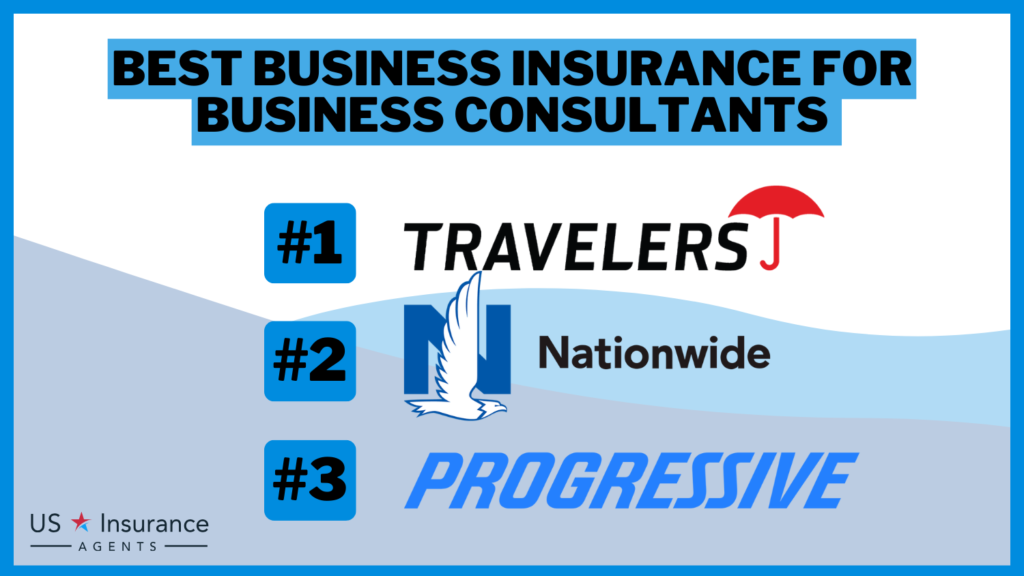Best Business Insurance for Churches (2026)
Protect Your Place of Worship: Discover Comprehensive Insurance Coverage for Churches to Safeguard Against Risks and Liabilities
Secured with SHA-256 Encryption






Table of Contents
Table of Contents


Managing Editor
Laura Kuhl holds a Master’s Degree in Professional Writing from the University of North Carolina at Wilmington. Her career began in healthcare and wellness, creating lifestyle content for doctors, dentists, and other healthcare and holistic professionals. She curated news articles and insider interviews with investors and small business owners, leading to conversations with key players in the le...
Laura Kuhl


Sr. Director of Content
Sara Routhier, Senior Director of Content, has professional experience as an educator, SEO specialist, and content marketer. She has over 10 years of experience in the insurance industry. As a researcher, data nerd, writer, and editor, she strives to curate educational, enlightening articles that provide you with the must-know facts and best-kept secrets within the overwhelming world of insurance....
Sara Routhier


Licensed Real Estate Agent
Angie Watts is a licensed real estate agent with Florida Executive Realty. Specializing in residential properties since 2015, Angie is a real estate writer who published a book educating homeowners on how to make the most money when they sell their homes. Her goal is to educate and empower both home buyers and sellers so they can have a stress-free shopping and/or selling process. She has studi...
Angie Watts
Updated January 2025
- Insurance is crucial for religious organizations to mitigate risks and potential liabilities.
- Various insurance policies address the unique needs of religious organizations, including general liability, business owner’s policy, professional liability, directors and officers insurance, workers’ compensation, and employment practices liability insurance.
- The cost of insurance for religious organizations depends on factors such as the size of the organization, revenue, and number of employees.
Religious organizations, including churches, face various risks and potential liabilities that can disrupt their operations. From accidents on the premises to legal disputes and property damage, these organizations need insurance coverage to protect themselves.
In this article, we will explore why insurance is essential for religious organizations, discuss the types of insurance they typically require, provide information on obtaining coverage, and address common questions about insurance costs.
Safeguarding Churches: Why do Churches Need Insurance?
Understanding the importance of insurance and the specific policies available, religious organizations can ensure they are adequately protected. Churches and religious organizations need insurance for several reasons:
- Protection against Accidents and Injuries: Churches are public spaces where congregants gather for worship services and events. Accidents can happen, such as slip-and-fall incidents or injuries during activities. Insurance provides coverage for medical expenses and potential liability claims arising from such accidents.
- Property Damage Coverage: Churches often have valuable assets, including buildings, equipment, and religious artifacts. Insurance helps protect these assets from risks like fire, theft, vandalism, or natural disasters, such as storms or earthquakes.
- Legal Liability Coverage: Churches can face lawsuits and legal disputes for various reasons. Insurance provides coverage for legal defense costs and potential settlements or judgments in cases of alleged negligence, misconduct, or other claims against the church or its members.
- Pastoral Counsel Protection: Churches offer counseling and pastoral services to their members. If a church member suffers harm or claims negligence due to pastoral advice or counseling, professional liability insurance, also known as errors and omissions insurance (E&O), can provide financial protection.
- Employment-related Claims: Churches with employees may encounter employment-related claims such as wrongful termination, discrimination, or harassment. Employment practices liability insurance (EPLI) helps cover legal expenses and potential damages resulting from these claims.
- Board of Directors and Officers Protection: Churches have governing boards and officers who make decisions on behalf of the organization. Directors and officers insurance (D&O) offers financial protection to board members and officers if they face lawsuits alleging wrongful acts or decisions that caused financial losses.
By having appropriate insurance coverage, churches can protect their financial well-being, continue their religious activities uninterrupted, and have peace of mind knowing they are prepared for unexpected events and potential legal challenges.
Free Business Insurance Comparison
Compare Quotes From Top Companies and Save
Secured with SHA-256 Encryption
Essential Insurance Coverage for Churches: Protecting Against Various Risks
These are some of the key types of insurance coverage that churches should consider to address their unique risks and liabilities. Some of the most common insurance coverage for churches are the following:
- General Liability Insurance: This policy provides coverage for bodily injury, property damage, and personal injury claims that may arise from accidents or incidents on church premises. It protects the church from financial losses and legal expenses resulting from lawsuits filed by injured parties.
- Property Insurance: Property insurance covers the physical assets of the church, including buildings, equipment, furniture, and fixtures. It provides financial protection in the event of damage or loss due to fire, theft, vandalism, natural disasters, or other covered perils.
- Professional Liability Insurance (Errors and Omissions Insurance): Professional liability insurance, commonly referred to as errors and omissions insurance (E&O), protects churches and their staff members from claims of professional negligence or misconduct. It covers legal costs and damages resulting from errors, mistakes, or inadequate pastoral counseling.
- Directors and Officers Insurance: Directors and officers insurance (D&O) provides coverage for the personal liability of board members and officers of the church. It protects them from legal expenses and damages if they are sued for alleged wrongful acts, errors in judgment, or decisions that result in financial loss for the organization.
- Workers’ Compensation Insurance: If the church employs staff or has volunteers, workers’ compensation insurance is essential. It covers medical expenses, lost wages, and rehabilitation costs for employees who suffer work-related injuries or illnesses. It also protects the church from potential lawsuits related to workplace injuries.
- Employment Practices Liability Insurance: Employment practices liability insurance (EPLI) protects the church from legal claims related to employment practices, including wrongful termination, discrimination, harassment, or violation of employee rights. It covers legal defense costs and potential damages resulting from such claims.
It is important to assess the specific needs of the church and work with insurance professionals to determine the most appropriate coverage for comprehensive protection.
Understanding the Cost Factors of Church Insurance
The cost of church insurance can vary depending on several factors specific to the church and its operations. Here are some key factors that can influence the insurance premiums:
- Church Size: The size of the church, including the number of congregants and the physical size of the property, can impact the insurance cost. Larger churches may have higher premiums due to increased exposure to risks and higher property values.
- Annual Revenue: Insurance providers often consider the annual revenue of the church when determining premiums. Higher revenue may indicate a larger scope of activities and potentially higher liability risks, which can result in higher insurance costs.
- Property Value: The value of the church property, including the building(s), contents, and any valuable assets such as artwork or historical artifacts, is a significant factor in insurance premiums. The replacement cost and vulnerability to risks such as fire or natural disasters will influence the cost of property insurance.
- Activities Conducted: The types of activities conducted by the church, such as childcare services, community outreach programs, or hosting events on the premises, can impact the insurance cost. Activities that involve additional risks may result in higher premiums.
- Coverage Limits and Deductibles: The coverage limits chosen for each type of insurance policy and the deductible amounts will affect the premiums. Higher coverage limits and lower deductibles generally lead to higher premiums.
- Claims History: Insurance providers may consider the church’s claims history when determining premiums. If there have been previous claims or a history of frequent incidents, it can impact the cost of insurance.
It is important to note that insurance premiums can vary between insurance providers.
Obtaining Church Insurance: A Simplified Process for Comprehensive Coverage
Getting insurance coverage for your religious organization is a straightforward process when you have the necessary information.
Follow these steps to secure insurance for your religious organization:
- Assess Your Insurance Needs: Begin by evaluating the specific insurance requirements of your church. Consider factors such as the size of the congregation, property value, activities conducted, and number of employees or volunteers. This assessment will help determine the types and amounts of coverage needed.
- Research Insurance Providers: Look for reputable insurance providers experienced in serving religious organizations. Seek recommendations from other churches or consult insurance brokers who specialize in church insurance. Research different providers to compare their offerings, coverage options, and customer reviews.
- Gather Information: Prepare the necessary information about your church, including its size, annual revenue, property details, employee count, and any unique risks associated with your specific religious activities. Having this information readily available will streamline the application process.
- Obtain Quotes: Contact insurance providers or use online platforms that offer quoting services for church insurance. Provide the gathered information and details about your insurance needs to receive accurate quotes tailored to your church’s requirements. Consider obtaining multiple quotes to compare coverage options and premiums.
- Review Coverage Options: Carefully review the coverage options presented in the quotes. Ensure that they adequately address the specific risks faced by your church, including general liability, property protection, professional liability, and other relevant policies. Assess the policy terms, limits, deductibles, and any additional endorsements or riders.
- Consult with an Insurance Professional: If needed, consult with an insurance professional or broker who specializes in church insurance. They can provide guidance, help you understand the policy terms and conditions, and ensure that you make informed decisions based on your church’s unique needs.
- Purchase a Policy: Once you have chosen the insurance provider and policy that best suits your church’s requirements, proceed with the purchase. Review the policy documents carefully, including the coverage details, exclusions, and any additional endorsements or amendments. Make the necessary payments to activate the policy.
- Certificate of Insurance: After purchasing the policy, obtain a certificate of insurance from the insurance provider. This document serves as proof of coverage and is often required when entering into contracts or using church facilities for external activities.
Remember to regularly review your insurance coverage as the needs of your church may change over time. Stay in communication with your insurance provider to ensure ongoing protection against potential risks and liabilities.
Free Business Insurance Comparison
Compare Quotes From Top Companies and Save
Secured with SHA-256 Encryption
In Summary: Churches and Essential Insurance
Insurance plays a vital role in safeguarding the interests of churches and religious organizations. With their unique needs and potential risks, churches require comprehensive insurance coverage to ensure the continuity of their spiritual activities and protect their physical assets.
When seeking insurance for churches, it is essential to assess the specific needs of the organization, conduct thorough research on reputable providers, and obtain multiple quotes to compare coverage options and premiums.
By investing in appropriate insurance coverage, churches can focus on their spiritual mission, knowing they are prepared for unexpected events and potential legal challenges.
Frequently Asked Questions
Why is insurance important for churches?
Insurance is crucial for churches as it provides financial protection against various risks and liabilities. It ensures that churches can continue their spiritual activities uninterrupted, covers potential lawsuits, protects valuable assets, and safeguards the well-being of employees and congregants.
What risks can churches face without insurance?
Churches can face a range of risks without insurance, including accidents or injuries on church premises, property damage from unforeseen events, legal claims for negligence or misconduct, employment-related disputes, and financial losses resulting from decisions made by board members or officers.
Can’t churches rely on faith alone to overcome challenges?
While faith is central to churches, relying solely on faith to overcome challenges may not provide adequate protection against unforeseen events and legal liabilities. Insurance offers a practical and responsible approach to mitigate risks and ensure the long-term sustainability of the church’s mission.
How does church insurance benefit the congregation?
Church insurance benefits the congregation by creating a safe environment for worship and activities. It provides coverage for accidents and injuries, ensuring that medical expenses are taken care of and potential liability claims are addressed. It also gives congregants peace of mind knowing that the church is prepared for unexpected events.
Can churches customize their insurance coverage?
Yes, churches can customize their insurance coverage to meet their specific needs. Insurance providers offer flexible options to tailor policies based on the size of the church, activities conducted, property value, and other factors. Working with insurance professionals specializing in church insurance can help churches create a comprehensive and customized insurance plan.
Get a FREE Quote in Minutes
Insurance rates change constantly — we help you stay ahead by making it easy to compare top options and save.







